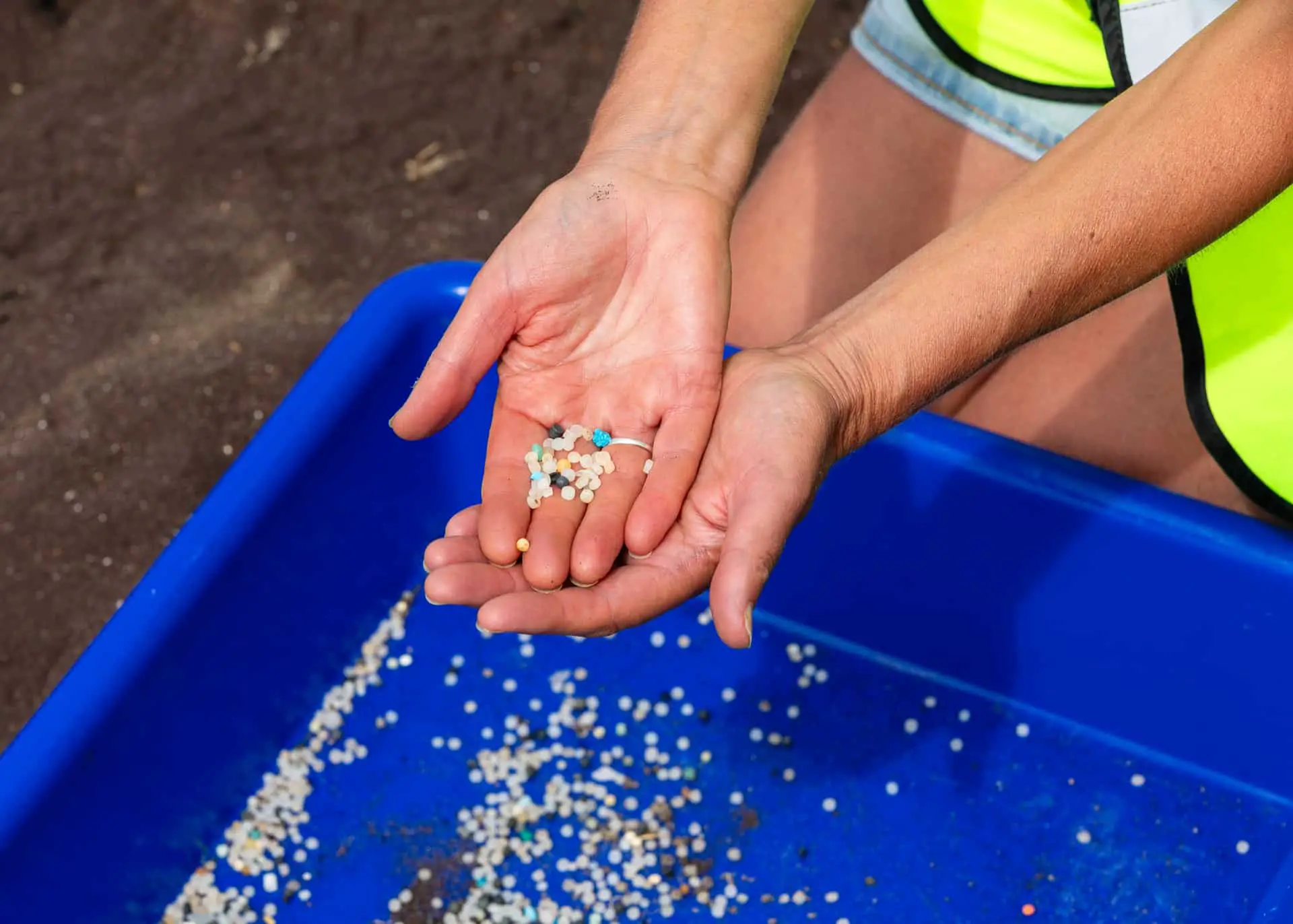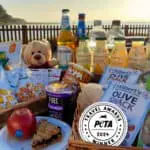Planet Aware (PA), a local voluntary Community Action Group based on the Isle of Wight, were “thrilled” by the attendance at their presentation and demonstration around plastic pellet (a form of microplastic) pollution, which took place on Friday 26th January at Seely Hall in Brook and Compton Bay.
This was in partnership with environmental consultant and pollution response organisation Oracle Environmental Experts (OEE).
Raising awareness of nurdle pollution
The aims were to raise awareness on nurdle pollution, to gain support from local and national government, to draw attention to ways of tackling this unrelenting issue to ensure plastic pellet pollution is on the IW and UK agenda.
IW MP Bob Seely, alongside representatives from organisations such as the National Trust, Crown Estates, Maritime and Coastguard Agency, Visit IW, Hampshire and Isle of Wight Wildlife Trust, and local councillors and parliamentary candidates from all parties, participated in this initiative.
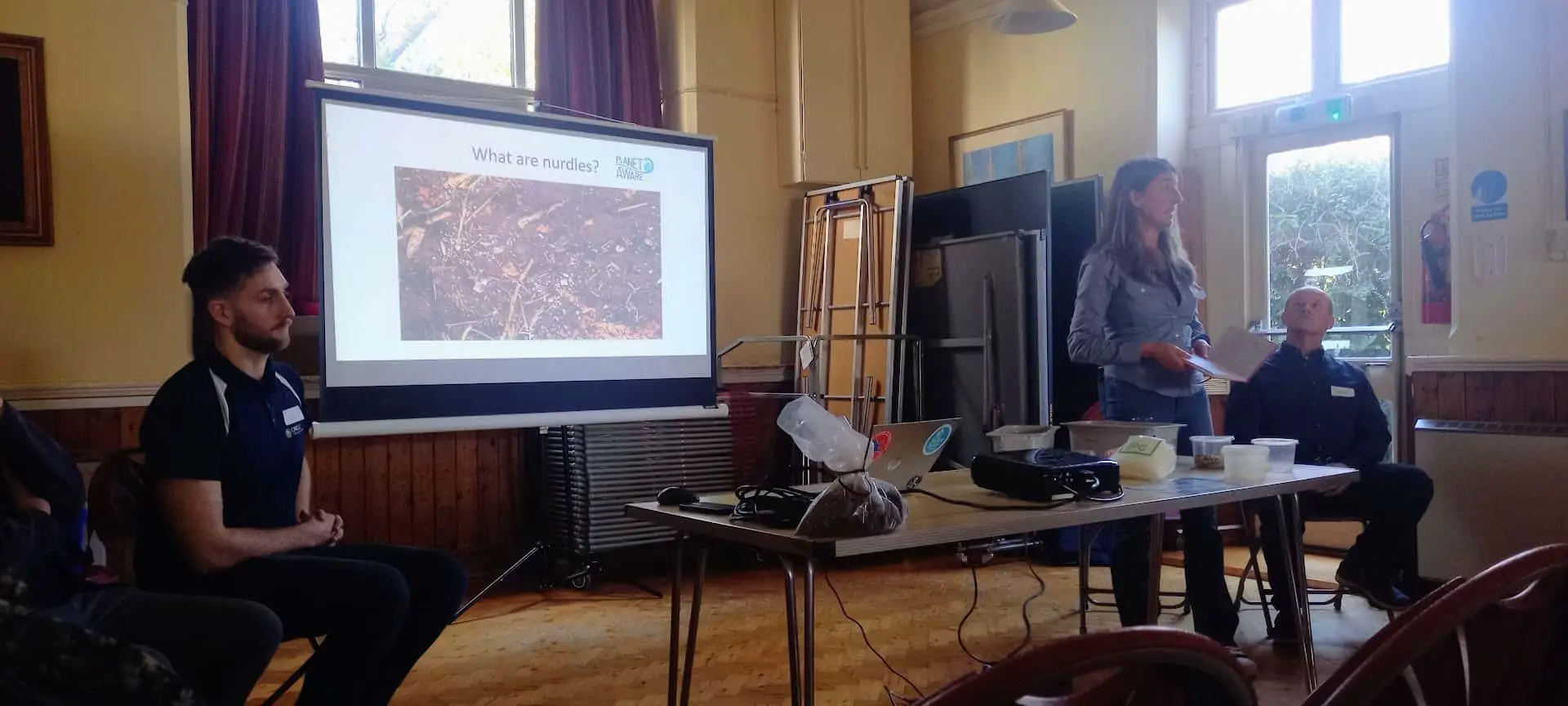
MP committed to raising questions in Parliament
The PA team said,
“We are pleased our Island MP, Bob Seely, was able to join the group at the beach after the presentation. As with many people, he was unaware of the numbers of pellets on our beaches and was shocked by how ‘endemic’ they were.
“He has committed to raising questions in Parliament about the issue.”
What are nurdles?
Nurdles are lentil sized plastic pellets, on average 2 mm in diameter, that are manufactured to produce everyday plastic products. They are transported all over the world. However sadly, container ship spills and poor handling practices along the supply chain result in frequent losses to the environment including our ocean and shores.
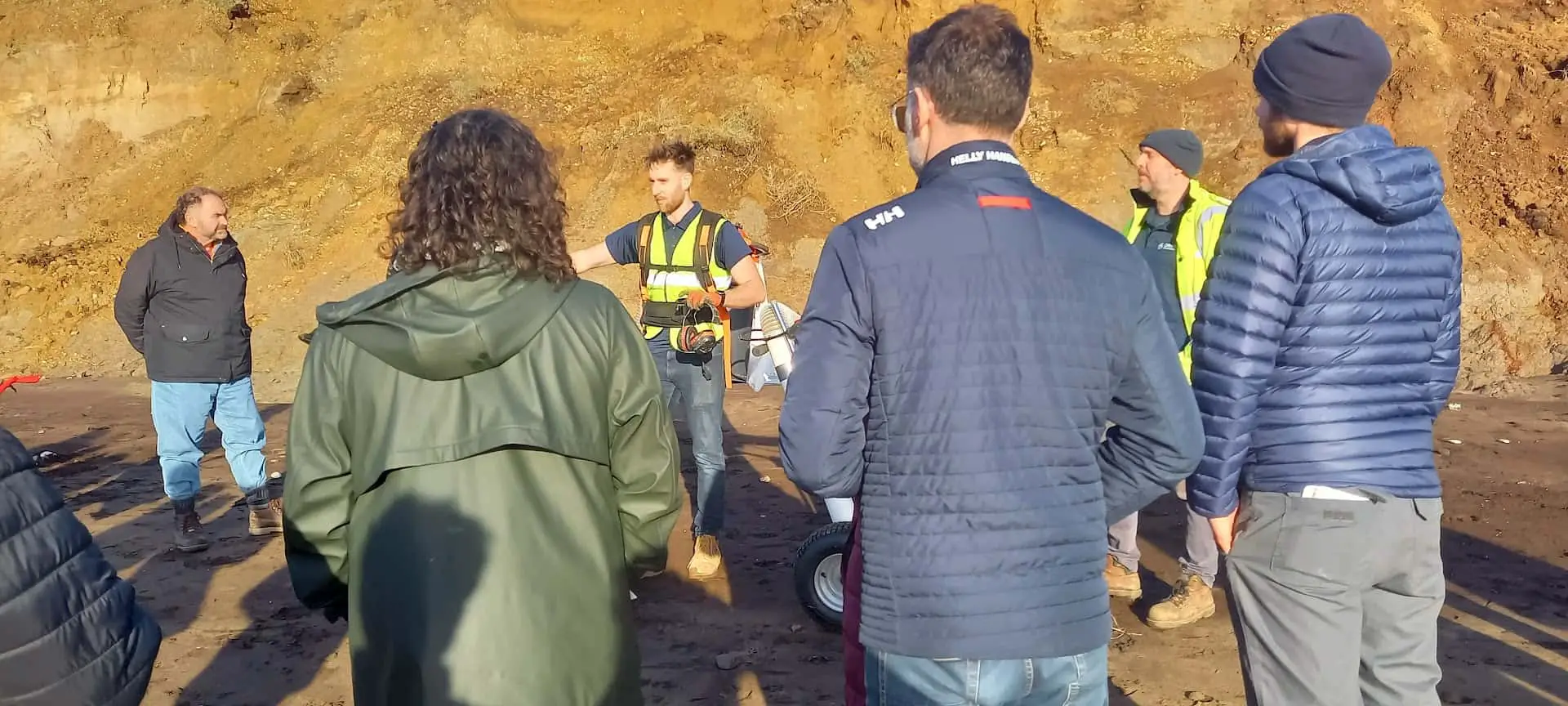
Presentations were given by PA volunteers Sarah Marshall and Andrew Dean, who explained their concerns regarding the number of nurdles recovered over the past year from several IW beaches, including popular IW holiday destinations.
Dean: Healthy clean seas are vital to us all
Andrew continued,
“Our local beaches are important to our tourist economy and socially, no one wants a beach full of plastic.
“Healthy clean seas are vital to us all.”
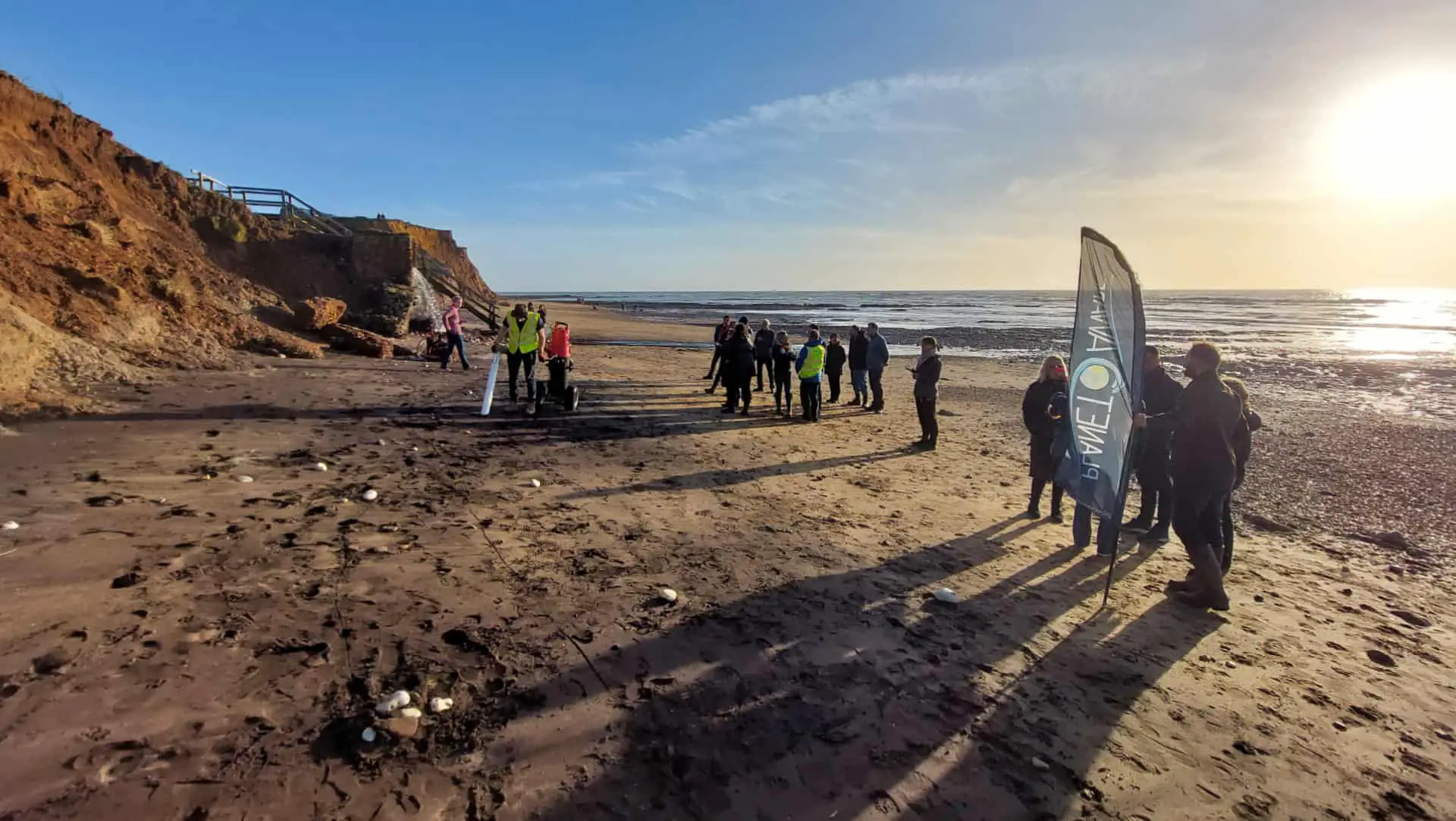
No plans in place
Sarah and Andrew expressed concern that,
“No plan is currently in place both nationally or locally to deal with a nurdle spill on our shorelines, with the responsibility for responding to large spills falling to the landowner or local council. There are also no supported routes for disposal of the nurdles that are collected.”
Impact of this microplastic pollution on communities
Jon Burton and Joshua Doran from OEE, founding members of the UK and Ireland Spill Association’s Plastic Pollution Working Group (PPWG) also presented. They spoke on their recent collaboration with Fidra* producing a report detailing the Global Pellet Supply Chain and the impact of this microplastic pollution on communities, livelihoods and ecosystems and ways in which this could be reduced.
Globally, it is estimated that up to 22 trillion pellets could be lost to the environment every year and this could triple by 2060 if our reliance on plastic does not reduce, and better management is not put in place.
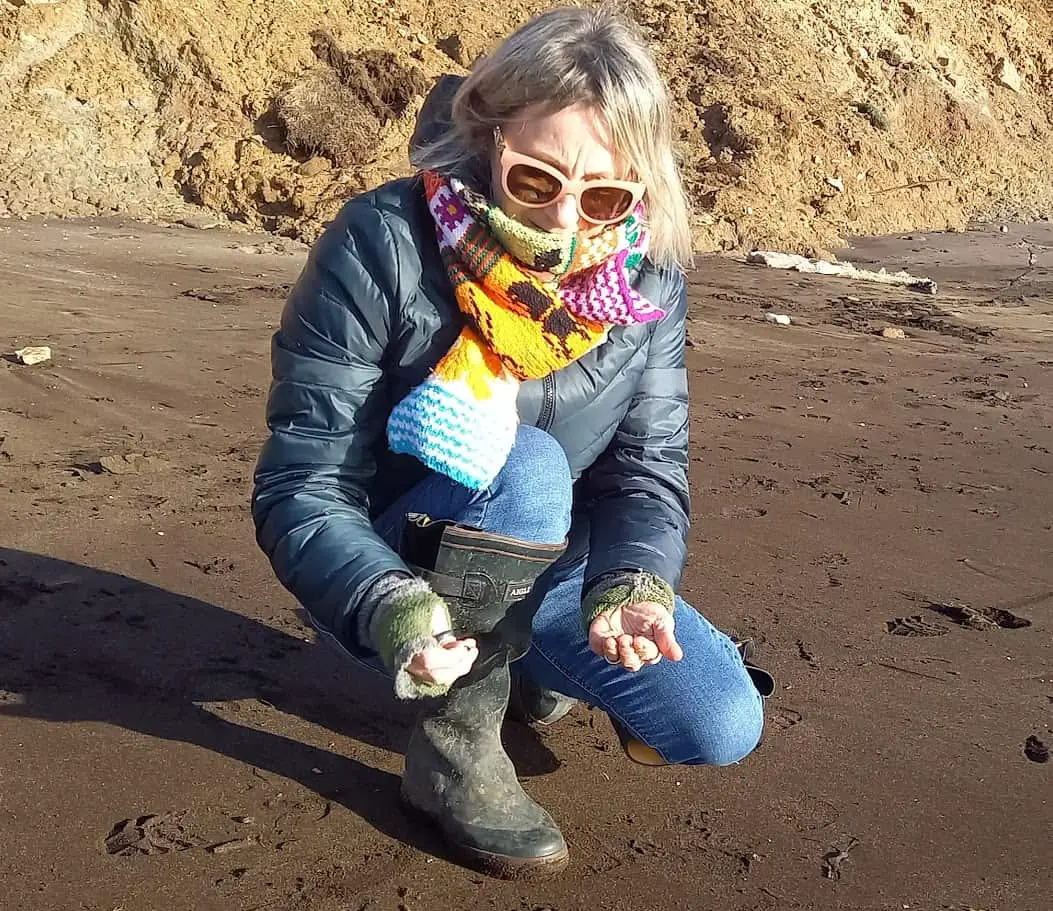
Burton: We must act quickly to improve our preparedness
Jon (from OEE) explained that,
“Implementation of policy and legislation on the transport and handling of these nurdles will greater reduce the number of spills, but whilst we wait for implementation of such legislation, we must act quickly to improve our preparedness and ability to respond following acute losses.”
Doran: Needs to be more backing for ongoing R&D
OEE have been researching and trialling vacuum recovery equipment, trommels and sieve separation techniques to aid in the rapid response and effective recovery following an acute loss or chronic pollution sites. Josh stated that,
“There are many tools that can be used depending on the shoreline type and there needs to be more backing for ongoing research and development to help speed up the recovery to reduce the potential impacts of any spills.”
The positive news
There is positive news. These pellets are beginning to be recognised as harmful substances to the environment by the International Maritime Organisation (IMO) which could result in much improved measures for their transport around the globe.
The PA committee said,
“We are grateful to all who attended and to Oracle Environmental Experts for their support. It was great to see that attendees were interested to learn more about nurdles during the presentations.
“Seeing the extent of the nurdles along the strandlines on one of our local beaches firsthand, we believe, really made an impact on those present. Plastic pollution is an issue we can help prevent and have to ensure that we are ready to respond to.”
They added,
“Plastic is a currently a useful resource for many things, but our excessive plastic consumption, lack of circular economy and real incentives for its reduction is driving the increase in pellet production and transportation.
“We can help in our day-to-day lives by refusing and reducing – this includes refill and repair and even renting/hiring and sharing items rather than buying new. We can ask our representatives to do what they can to ensure this type of pollution in recognised.
“We would also love to have more volunteers on board so why no offer your skills to the group or just come along on a nurdle hunt.”
Planet Aware and OEE asks that if you see nurdles when on the beach you can help by doing a Nurdle Survey and by sharing photos and location to our nurdle FB page coming soon!
News shared by Sarah on behalf of Planet Aware. Ed

